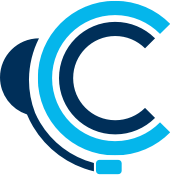October 16, 2023
What is Quality Assurance in A Call Center and Its Impact on Business
Call centers serve as a crucial link between customers and organizations, and effective communication is vital for shaping business success. Service quality in call centers is paramount, as even one instance of poor customer care can have lasting consequences. Call center quality assurance is the foundation for ensuring and improving service quality.
To successfully adapt to the evolving challenge of assuring customer satisfaction, implement new strategies and stay proactive. In this guide, we explore call center quality assurance and its significant impact on your business, emphasizing its critical role in ensuring customer satisfaction and maintaining a positive organizational image.
What is Quality Assurance in A Call Center?

Quality assurance in a call center is about meeting specific quality standards and exceeding customer expectations. It involves monitoring and assessing customer interactions and maintaining consistent compliance with internal and external regulations.
This ensures standardized, measurable, and predictable service delivery, ultimately enhancing customer satisfaction and solidifying your brand’s reputation. Quality assurance can be achieved in any of the following ways:
AI Backed by Human Review
AI is a game-changer in call centers, as it efficiently processes vast amounts of data with unmatched speed and accuracy. However, it’s crucial to understand that AI alone can’t provide 100% accuracy, typically reaching up to 80% due to various factors.
To achieve top-notch results, human input in quality assurance is indispensable. The combination of AI’s speed and the precision of the human ear delivers 99.5% efficiency.
Call Criteria offers an integrated platform featuring AI backed by human review, ensuring a comprehensive and effective approach to maintaining the highest customer service standards.
An Outsourced Third–party Perspective: QA as a Service
Call centers face a pivotal decision: in-house quality assurance or outsourcing to specialized providers. Both have merits, but outsourcing offers significant advantages, including unbiased review, expertise, flexibility, scalability, cost efficiency, objectivity, and access to advanced technology.
Experience
Notably, outsourcing quality assurance has different benefits, with a wealth of experience and specialization ranking high on the list. External quality analysts guarantee a degree of competency that can be difficult to match in-house because they are committed to developing their quality assurance abilities and staying current with industry trends.
Flexibility
Outsourcing quality assurance provides unparalleled flexibility. It enables call centers to scale their quality assurance efforts up or down swiftly, adapting to fluctuating call volumes or changing business needs. This agility can enhance operational effectiveness.
Cost efficiency
Outsourcing eliminates the overhead costs related to maintaining an in-house quality assurance team. Service providers offer tailored pricing models, ensuring you pay only for the services you require, thus optimizing your budget allocation.
Objectivity
The objectivity it delivers to the review process is one of the most compelling reasons for outsourcing quality assurance. External sources provide a neutral perspective that may result in more precise and helpful criticism. Maintaining client pleasure and enhancing call center performance depends on this impartiality. Furthermore, outsourcing quality assurance often incorporates advanced technology, ensuring that evaluations are conducted with precision and thoroughness.
The Impact of Contact Center Quality Assurance on Business Performance

Call Center quality assurance has incomparable advantages. 86% of consumers, according to research, are willing to pay more for businesses that offer seamless, individualized client experiences. Customer happiness and business profitability are significantly impacted by call center quality monitoring. The advantages include:
Improving agent performance
Agents are crucial to ensuring customer satisfaction because they are always in constant communication with customers. Therefore, how they perform is a big concern, and it is only possible to review their performance through quality assurance.
Call Criteria’s dashboard provides all the information you require to generate actionable plans, like coaching by scorecards, point-specific coaching, and individual and team coaching. You can effortlessly identify your best-performing agents and those who need training through it.
Ensures Customer satisfaction
Through quality assurance, you can identify and promptly address customer pain points. For instance, if certain customers have called with the same issue within a week, the system will pick up keywords that you can later analyze and find a solution to these pain points. Your customers will be satisfied, and your business will boom.
Ensures Uniform Customer Service
Quality assurance processes establish and maintain a consistent standard of service quality. This ensures that every customer interaction meets predefined criteria that align with your brand’s image and values.
Cost Efficiency
Quality assurance leads to cost savings by reducing the number of repeat calls and customer churn. When Customers are satisfied, call centers spend less time and resources on handling complaints and inquiries.
Ensure agents meet compliance guidelines
There are specific rules that call centers have to adhere to to protect their consumers:
Consent
In some US states, the law requires both parties to be informed of call recording. Thus, agents must inform customers that their call is being recorded for quality purposes.
Agent Tracking
Information obtained from customers during calls is strictly confidential, and agents must not share unless it is required by law. Without putting strict measures, some agents might do the contrary, putting the customer at risk. This is why call centers are required to give their agents IDs, to make it easy to track down culprits of leaking or information tampering.
Payment Card Industry Data Security Standard (PCI DSS)
PCI DSS restricts call centers from keeping sensitive payment details. Contact centers are required to have reduction software that automatically identifies sensitive information and deletes it. Quality assurance ensures that your systems always delete sensitive customer information.
Do Not Call (DNC) registry
This is a database maintained by the Federal Trade Commission, listing individuals who have opted out of telemarketing calls. Quality assurance ensures agents don’t make calls to people whose contacts are in these entries.
Truth in Lending Act (TILA)
TILA protects consumers from being given inaccurate and unfair credit billing and credit card practices. Financial organizations need to observe this rule strictly. Agents are required to provide all necessary loan information to the consumer, and you can confirm that they did so through quality assurance.
Implementing an Effective Call Center Quality Assurance Program
The initial step in guaranteeing an effective quality assurance system for your team through establishing a well-defined process. To achieve this, you need a precise quality monitoring procedure tailored to your needs.
This will not only enhance the quality of your team’s output but also ensure a consistent and standardized approach to quality assurance.
Here is the exact process for ensuring a quality monitoring process that will work for your team:
Step 1: Set Clear Objectives
Defining what you want to achieve makes your quality assurance process more goal-oriented. It could be to increase first-call resolution rates, decrease call handle time, or enhance customer satisfaction scores.
Step 2: Use the Right Technology
To ensure the effectiveness of the quality assurance process, it’s crucial to equip your call center with reliable technology. Essential tools like call recording and monitoring systems, call center analytics software, comprehensive dashboards, integrated CRM, and speech analytics play a pivotal role. The integration of these tools not only streamlines the quality assurance process but also enhances its accuracy and efficiency.
Step 3: Develop Comprehensive Scorecards
Scorecards are tools that help contact centers track, evaluate, and monitor agent performance. Each agent is judged based on their score, which is often a reflection of how good their interaction with a customer is.
Creating a scorecard that mirrors essential performance call center metrics is key. Such scorecards should be user-friendly and pertinent to call center operations.
Step 4: Engage Agents in the Quality Assurance Process
To avoid creating unrealistic scorecards, involve your agents in the process as they have a comprehensive understanding. Furthermore, if they get involved, they will feel a sense of belonging and perform their duties with more enthusiasm. Ask them what they think of the scorecards and whether improvements need to be made.
Step 5: Analyze Data and Trends
Because customer satisfaction is paramount to all businesses, ensuring recurring issues are solved promptly is important. You can effortlessly collect and analyze such data through quality assurance.
Step 6: Seek Continuous Improvement
The call center industry is marked by constant change and evolution driven by shifting customer needs, emerging technologies, and evolving business strategies. In this ever-changing environment, the quality assurance strategy must undergo frequent updates and refinements to ensure customer satisfaction and operational efficiency.
Try a Demo with Call Criteria’s Call Center Quality Assurance
Call center quality assurance is the best way to warrant successful customer service.
Call Criteria boasts of unmatched call center quality assurance backed by human review. Unlock unparalleled advantages and elevate customer service by outsourcing your quality assurance to Call Criteria.
Our specialized expertise, cutting-edge technology, and proven track record will enhance your call center’s performance. Sign up for a demo today to try the effectiveness of our quality assurance services.
STILL HAVE QUESTIONS?
Further Information and FAQs
Call center quality assurance can be the backbone for a company. It is one of the ways to interact with customers one on one and get direct feedback.. You need to get call center quality assurance to
- Maintain quality standards
Call quality monitoring instills good call center practices in employees over time. The process takes time to get streamlined, but with constant monitoring and reinforcement call center agents learn to handle all kinds of customers.
- Customer retention
Call center managers understand that the cost of acquiring new customers is higher than retaining an existing customer. Managers have to boost call center quality assurance to prevent customers from switching to competitors.
- Customer experience
Seamless customer experience is when call center agents are able to provide quick and helpful assistance. They have to be trained for this purpose, which is possible through call center quality assurance.
- Adhering to compliance
Monitoring calls can help a business to ensure that the call center agents are adhering to the compliance norms and ensuring customer privacy and security.
- Improve call center quality assurance metrics
Monitoring service agents automatically improves the call center quality assurance metrics. Measuring call center metrics is a crucial aspect.
Reach out to specialists like Call Criteria. We are dedicated to helping you get unmatched performance.
There are a few common metrics that every call center quality assurance company uses. These are –
Speed of Answering – The average speed of answering phone calls (ASA) measures how fast the call center agents answer customer calls.
First call resolution – This metric tracks if agents are able to resolve customer’s issues in the first call, or if multiple calls are required.
Average handle time – The average time taken to successfully settle a call is a measurable metric. Low average handle times with low customer satisfaction is considered negative. The key is to resolve the issue completely.
Customer satisfaction score – This is the score that the customer gives measuring his satisfaction level from 1 to 10.
Net promoter score – This metric measures how likely a customer is likely to refer you to someone else. It is the loyalty score based on customer relations.
There are many more metrics that can propel your call center to do much better. Ask us for more.
Call center quality assurance looks at both – quantitative and qualitative metrics.
There are ways to measure qualitative methods that enhance customer experience, as well.
Here’s how our call center QA will help your agents –
- Cultivate empathy – Agents who are interested in solving customer’s queries flexibly have cultivated empathy for the customer’s problems. QA’s work hard to instill this quality.
- Go above and beyond – Agents who can make the caller engage in conversation and feel appreciated and valued have reached the peak of their optimum training.
- Meet customer’s needs through sales – Is the agent able to fulfill the customer’s needs through the call? If the customer takes more than what he was expecting, it is excellent customer service.
- Follow company procedures – The agent needs to be aware of the standard procedures and compliances, and adhere to them professionally while speaking to the customer.
These are the top skills for a QA analyst to have for excellent service –
- Analytical approach to problems
- Perceptive eye for improvements
- Discerning of metrics that need improvement
- Diligent about rapid changes in the business
- In-depth understanding of the business
- Exceptional communication skills
- Empathy
- Curiosity to research issues your agents witness
- Motivational to agents
- Coaching skills









